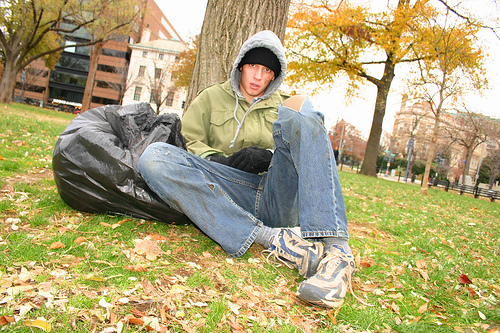
In a first step in a campaign to emphasize a moral and religious imperative in the state budget debate, clergy from a coalition of Los Angeles County churches and synagogues delivered sermons over last weekend calling on Gov. Jerry Brown to retain current state support for county indigent care.
Speaking at Los Angeles’ historic La Placita Church on Sunday, Father Richard Estrada urged his parishioners to join in a petition drive that asks the governor not to reduce the funding.
Preaching in Spanish, Estrada thanked his congregation for supporting efforts by the coalition, OneLA, to increase enrollment in Los Angeles’ County’s Medi-Cal expansion program.
But he said many of those enrolled at La Placita and other OneLA churches fail to qualify for federal programs because they are undocumented, and will be dependent on hospital emergency rooms for health care.
The governor has proposed cutting state support for counties’ indigent care by $300 million in the 2013-14, $900 million in 2014-15 and $1.3 billion in 2015-16. Brown argues that federal health care reform will cover these expenses, and that counties won’t need the money if they are not providing the services.
Health care advocates say it’s too early to predict what it will cost to serve those who will remain uninsured because they don’t qualify for federal programs, in part due to their immigration status.
Some estimates put Los Angeles County’s undocumented population dependent on such services at half a million, Estrada said. He told parishioners Sunday that signing the petition falls within the church’s tradition of serving the poor and the forgotten, as well as Jesus’ healing ministry.
“Gov. Jerry Brown is a very powerful man,” he said. “Don’t be afraid to proclaim the truth to the powerful. That is the spirit of Jesus.”
In an interview after the sermon, Tom Holler, executive director and lead organizer at OneLA, called health care coverage the reasonable consequence of a de facto arrangement.
“There was a bargain on the part of companies, on the part of people who wanted to come here and work and on the part of government to look the other way for 20 years,” he said.
“All the powers that be knew that this was happening, and now it’s time to make it right, and part of making it right is hearing everybody’s voice and coming up with a reasonable plan, and it’s reasonable for people to have access to health care if they’re here and they’re all paying taxes.”
There are estimates that as many as 1.3 million Los Angeles County residents – including the undocumented, people who missed enrollment deadlines and those who don’t qualify for Medi-Cal but still can’t afford coverage — could remain uninsured once national health reform takes effect.
But such figures are based on computer modeling.
“It’s hard to get real numbers yet because we haven’t started health reform yet,” said Dr. Anish Mahajan, who oversees the planning of service delivery for the Los Angeles County Department of Health Services.
He questioned Brown’s basis for the gradually increasing share of funds he expects to recover from county medical systems, starting with the proposed withdrawal of $300 million from indigent care in the pending fiscal year.
“If the governor takes money in fiscal year 2013-14, he’ll be taking money based on a lot of estimates and unknowns. It’s too soon to assume that every county’s going to have real savings.”
Ira Mehlman, spokesman for the Federation for American Immigration Reform, said the new public health issue arises from poor immigration policy and enforcement.
“We shouldn’t be dealing with the issues of illegal immigration at the hospital door. If you don’t enforce your immigration laws, you wind up with all kinds of other social issues,” he said.
“It happened that the government refused to take steps to stop illegal immigration. California and the various jurisdictions encouraged it. But that doesn’t mean that the American people entered into any sort of compact. Just because you show up and say, ‘I want to work’ doesn’t mean that we have to allow you to, and that we owe you something in terms of extended social benefits.”
The Protect the Health Care Safety Net Coalition – which includes Health Access, the California Immigrant Policy Center and the Western Center on Law and Poverty – has called on state legislators to adopt what the coalition calls a compromise between the governor’s call for thrift and health care advocates’ warnings against cutting too deeply.
It would preserve the state dollars that go to county services for at least three years, when demand for services by the newly insured is expected to peak and while the federal government continues to cover the full cost of their care. At the same time, the proposal would keep in place the counties’ Low-Income Health Programs, bare-bones coverage for persons not eligible for the expanded Medi-Cal services. Currently, those programs are set to expire at the end of this year.
After three years, the coalition proposes to tie a portion of state funding to enrollment in LIHP-like coverage programs. Proponents argue that this would allow counties that show continued demand to obtain needed state funds, while allowing Sacramento to claim savings if the needs of the uninsured are reduced.
“This isn’t gold or platinum coverage. This is a very basic service. But we do believe that everybody should have access to some very basic level of service in order for our communities to be healthy and economically vital,” said Anthony Wright, executive director at Health Access.





